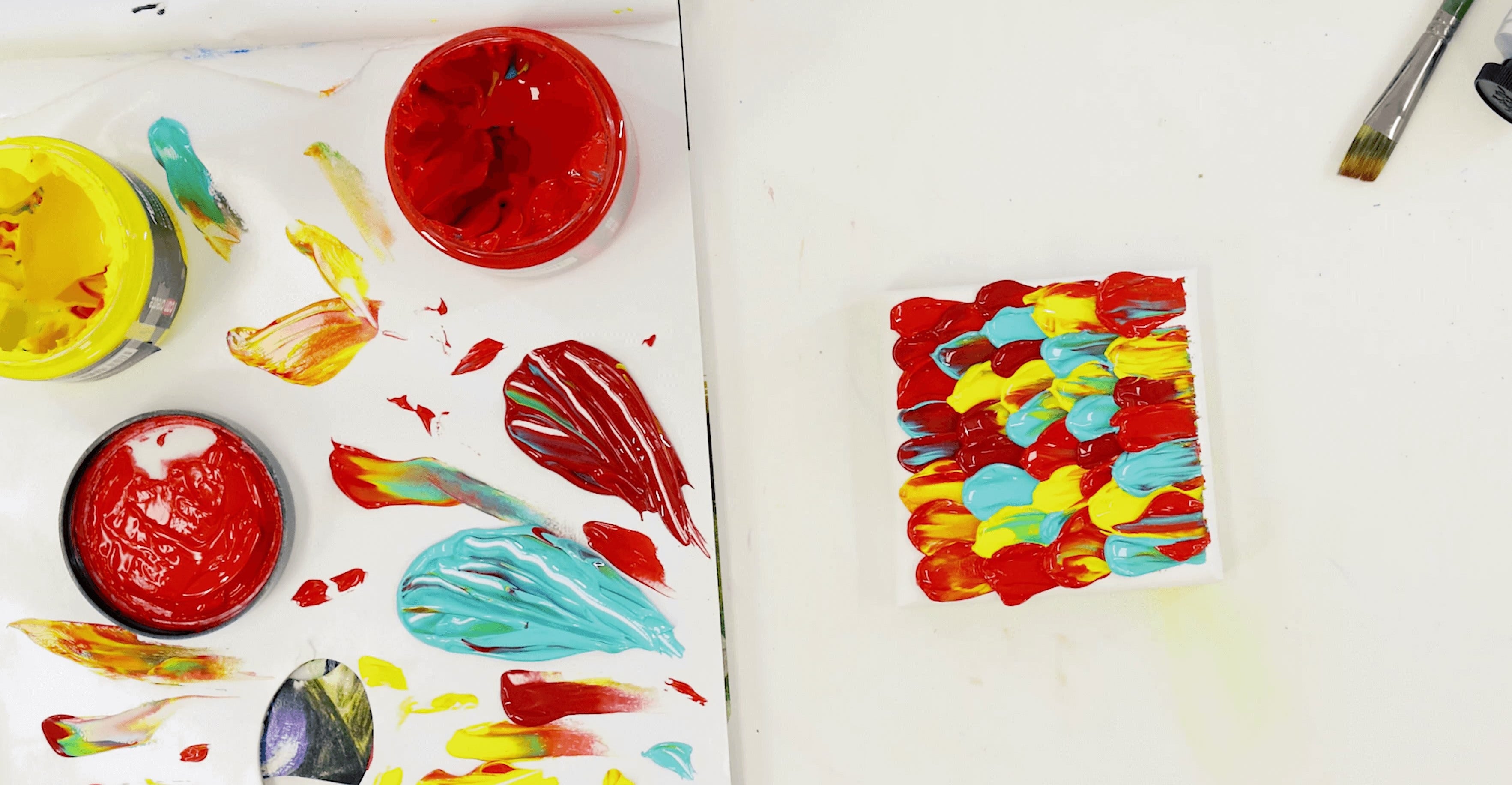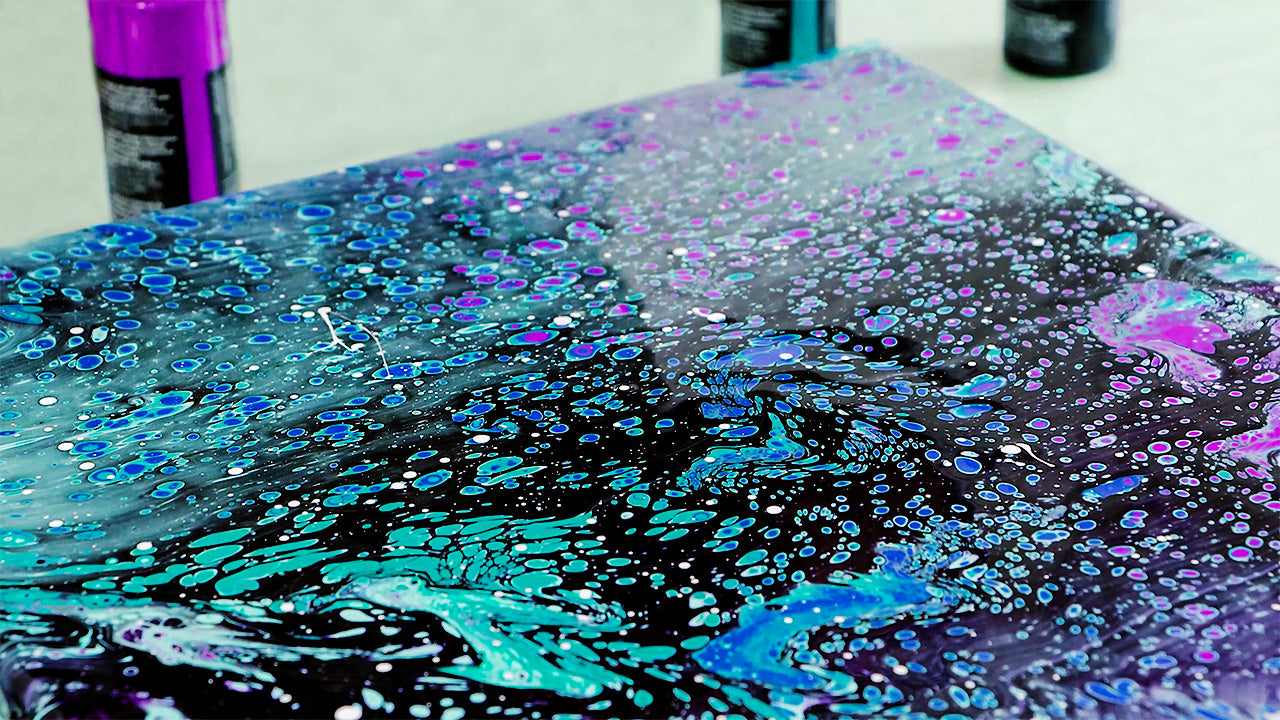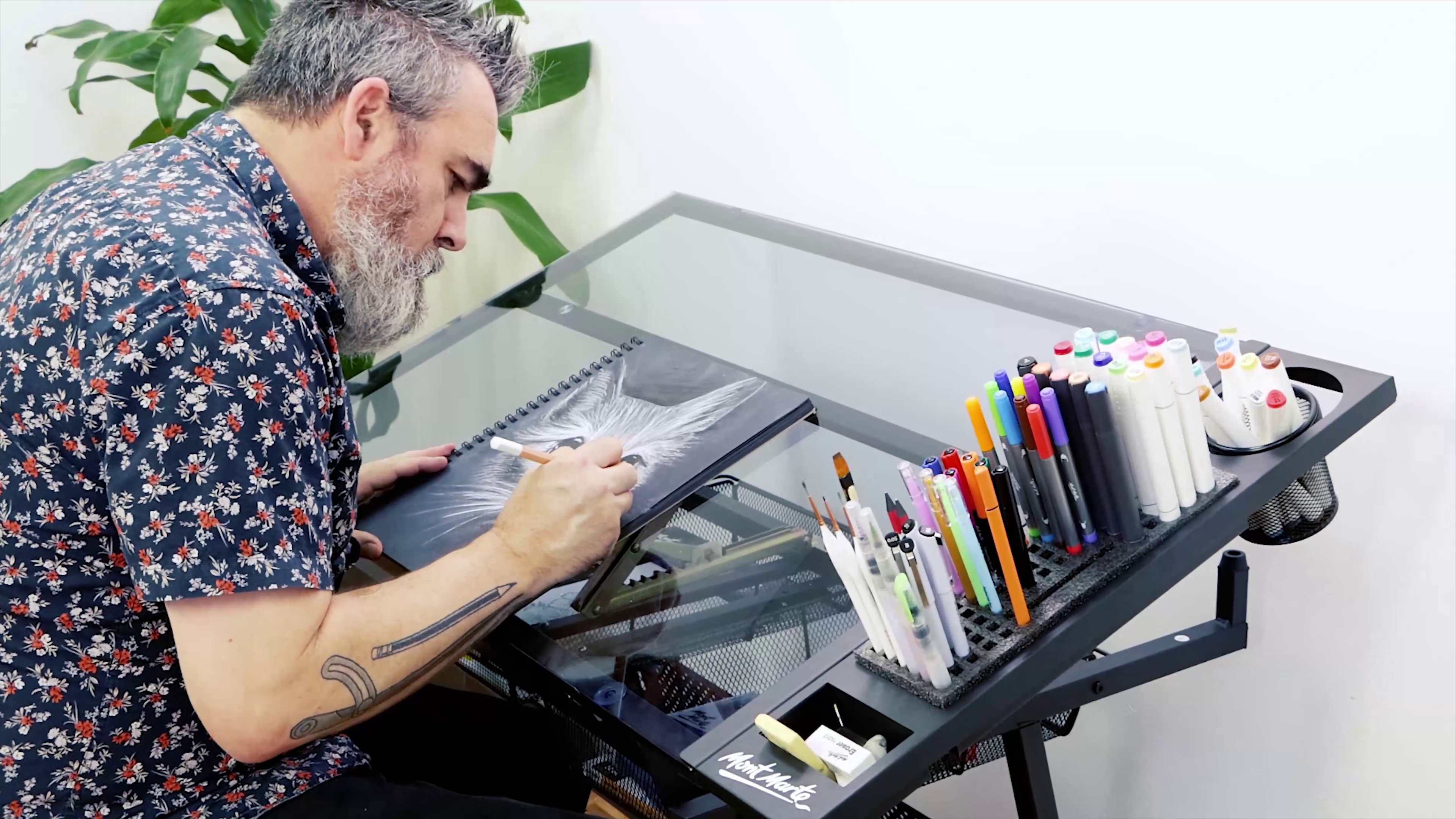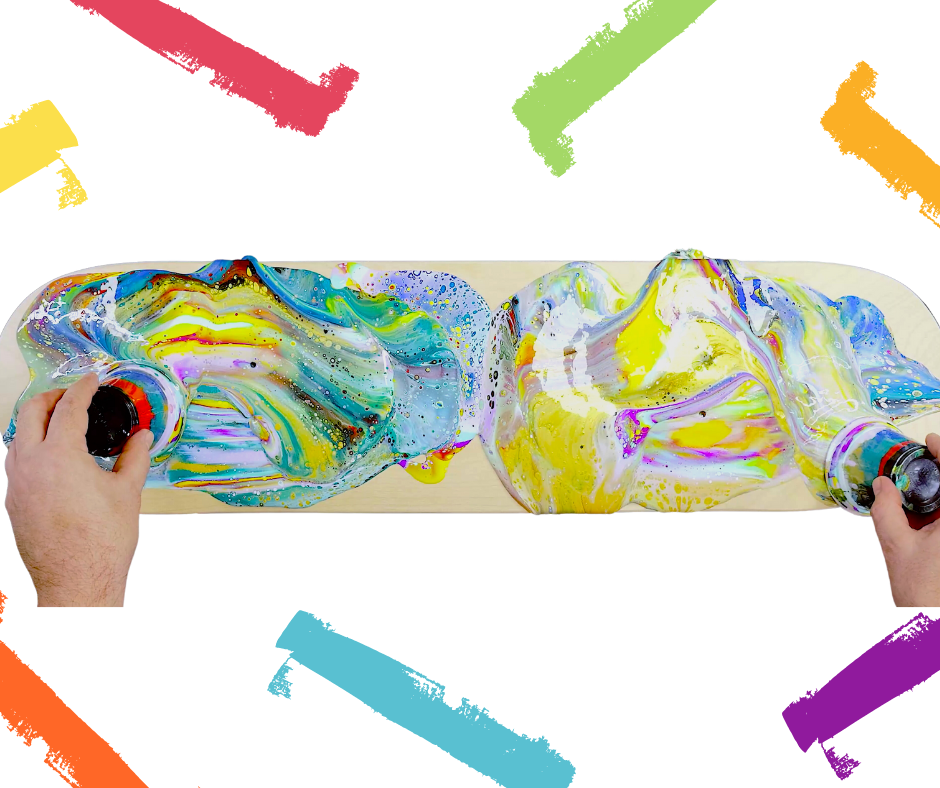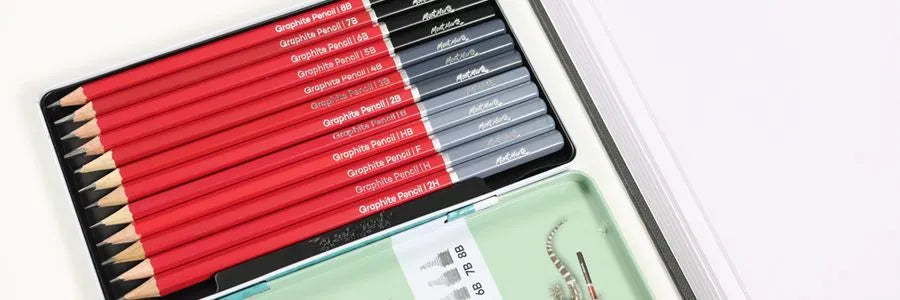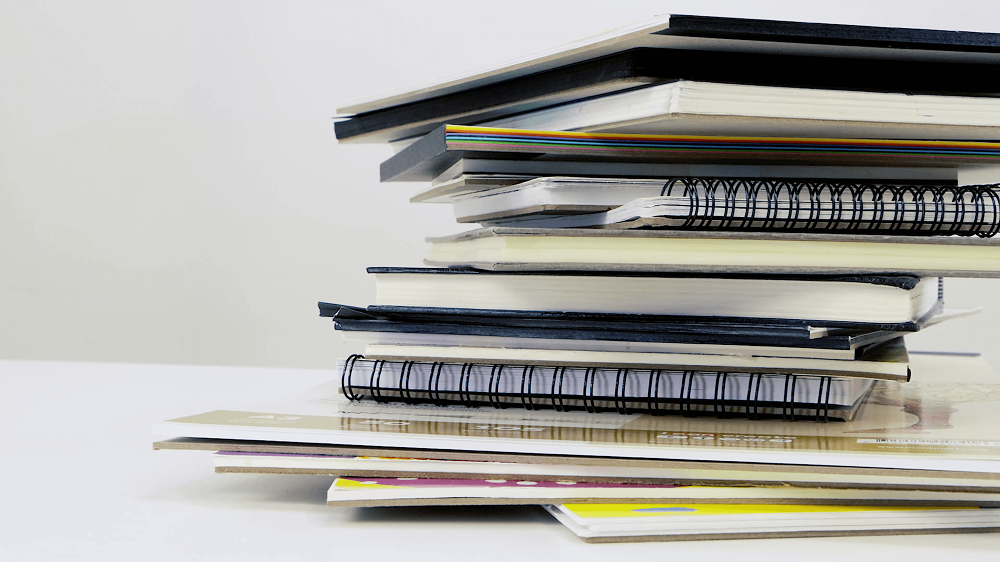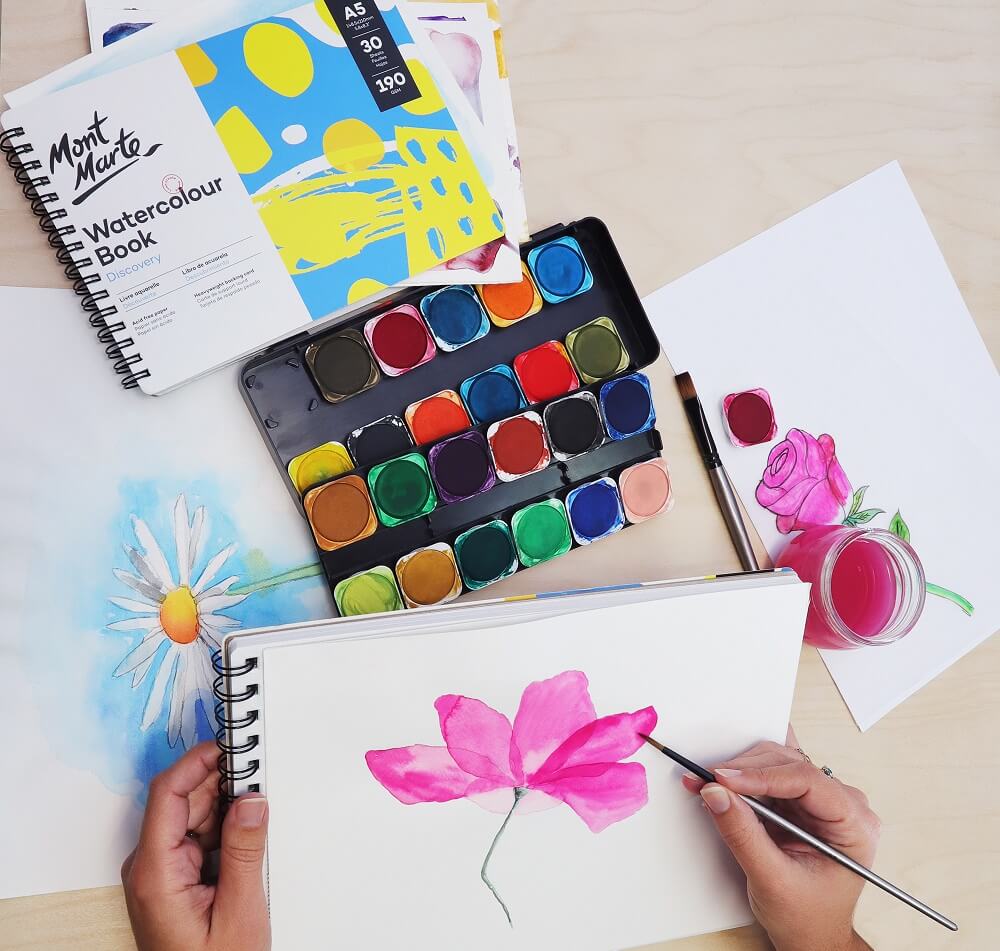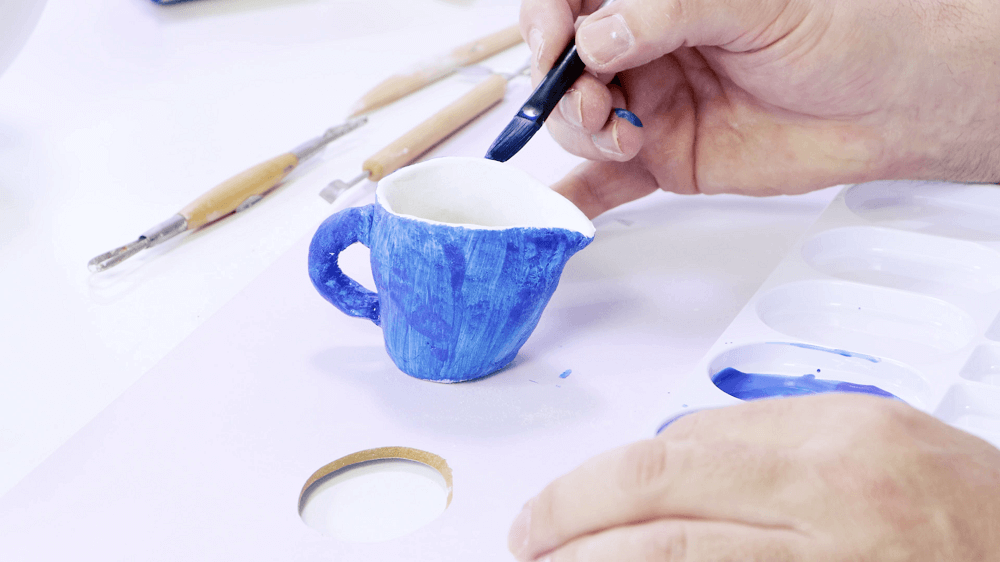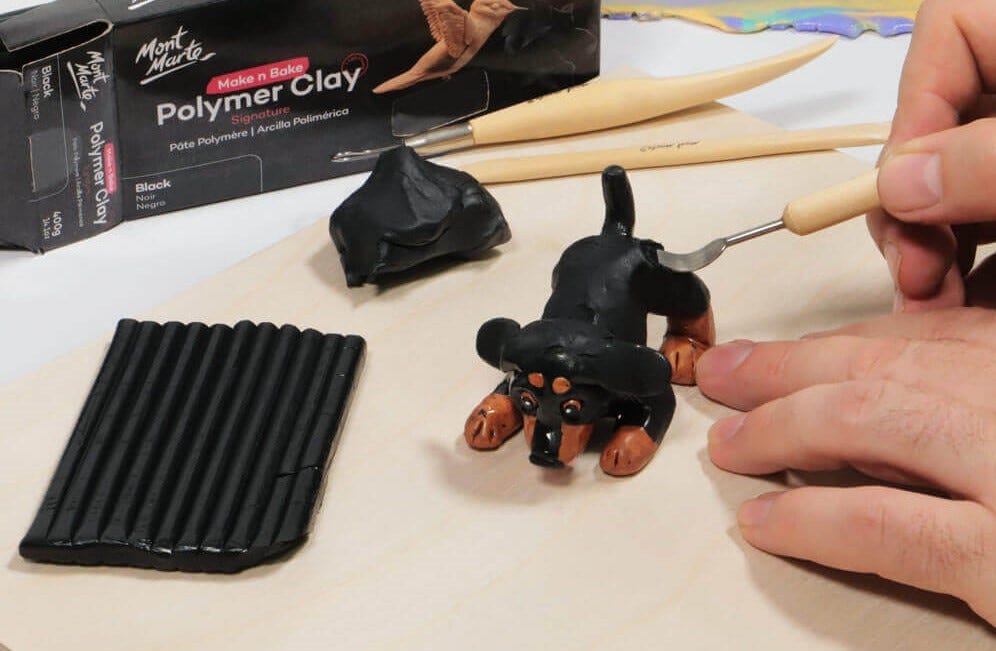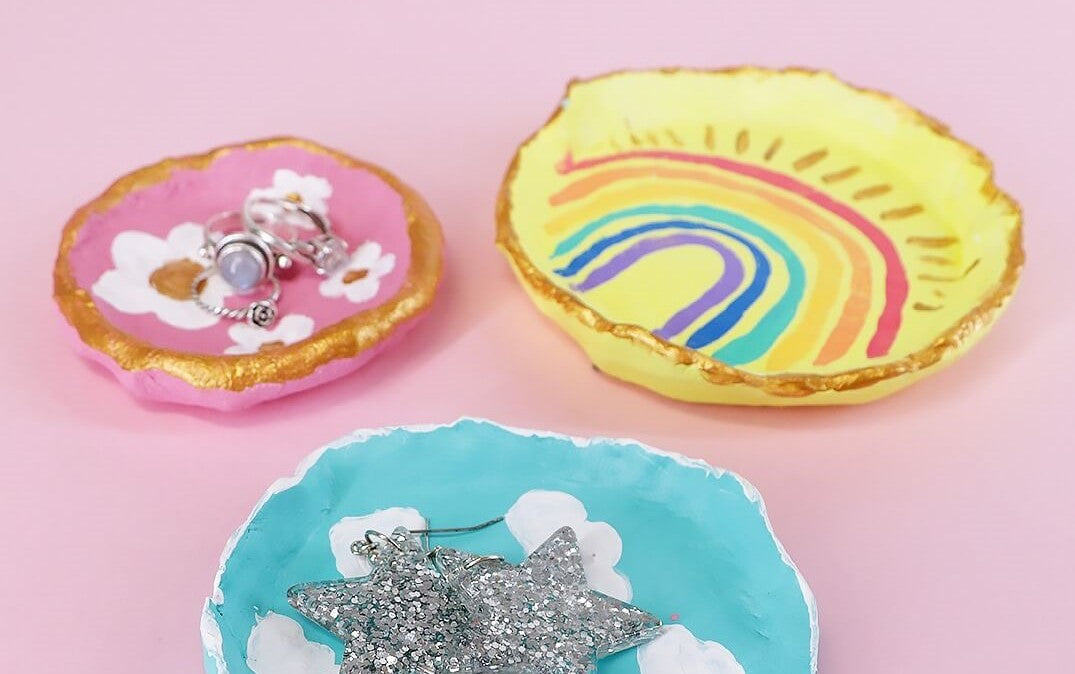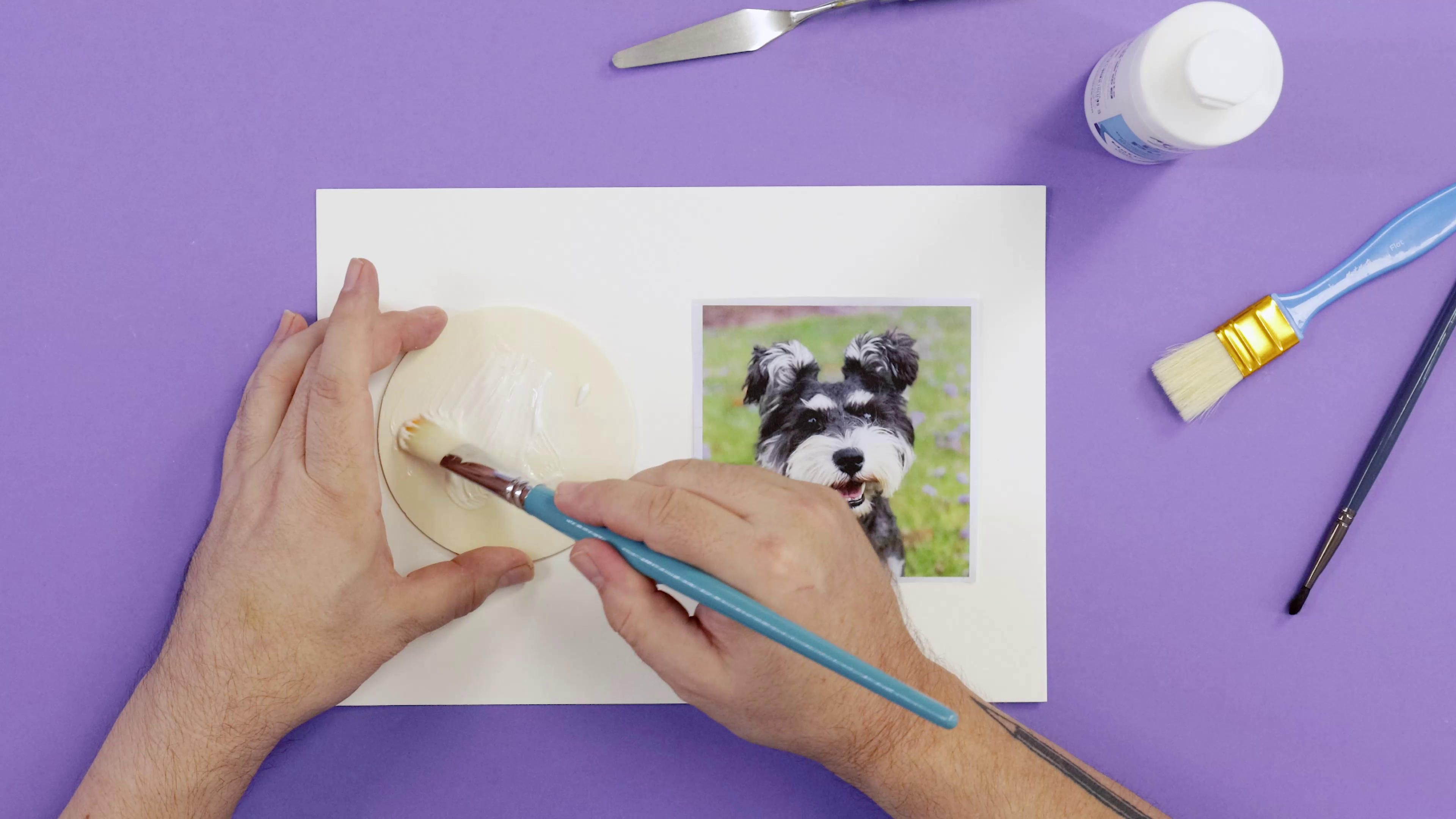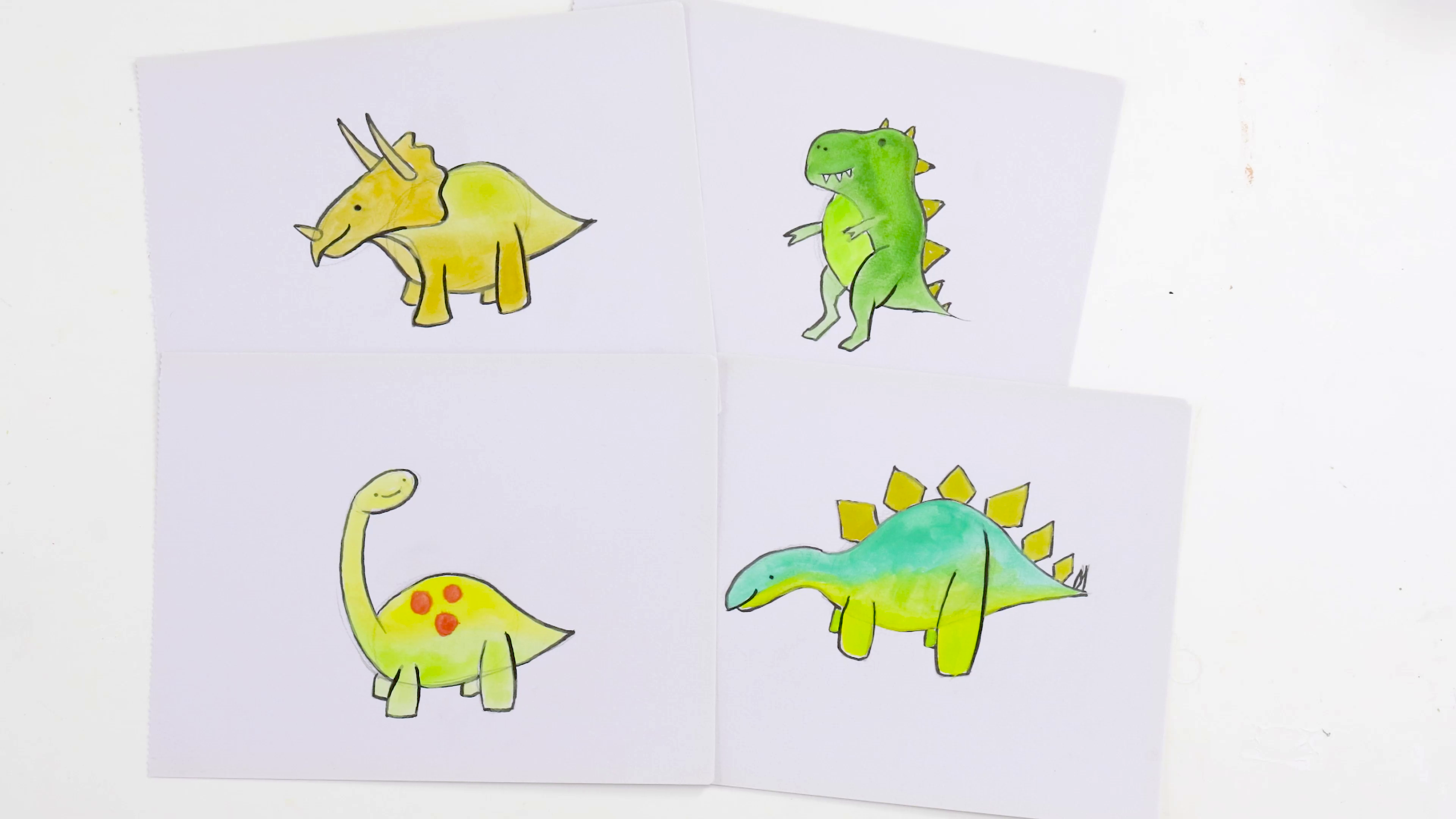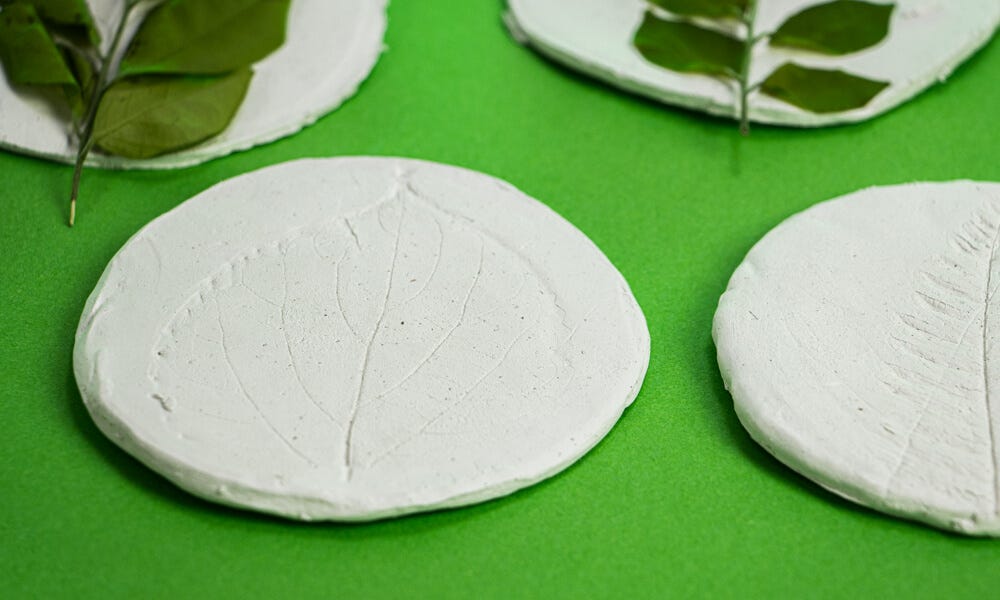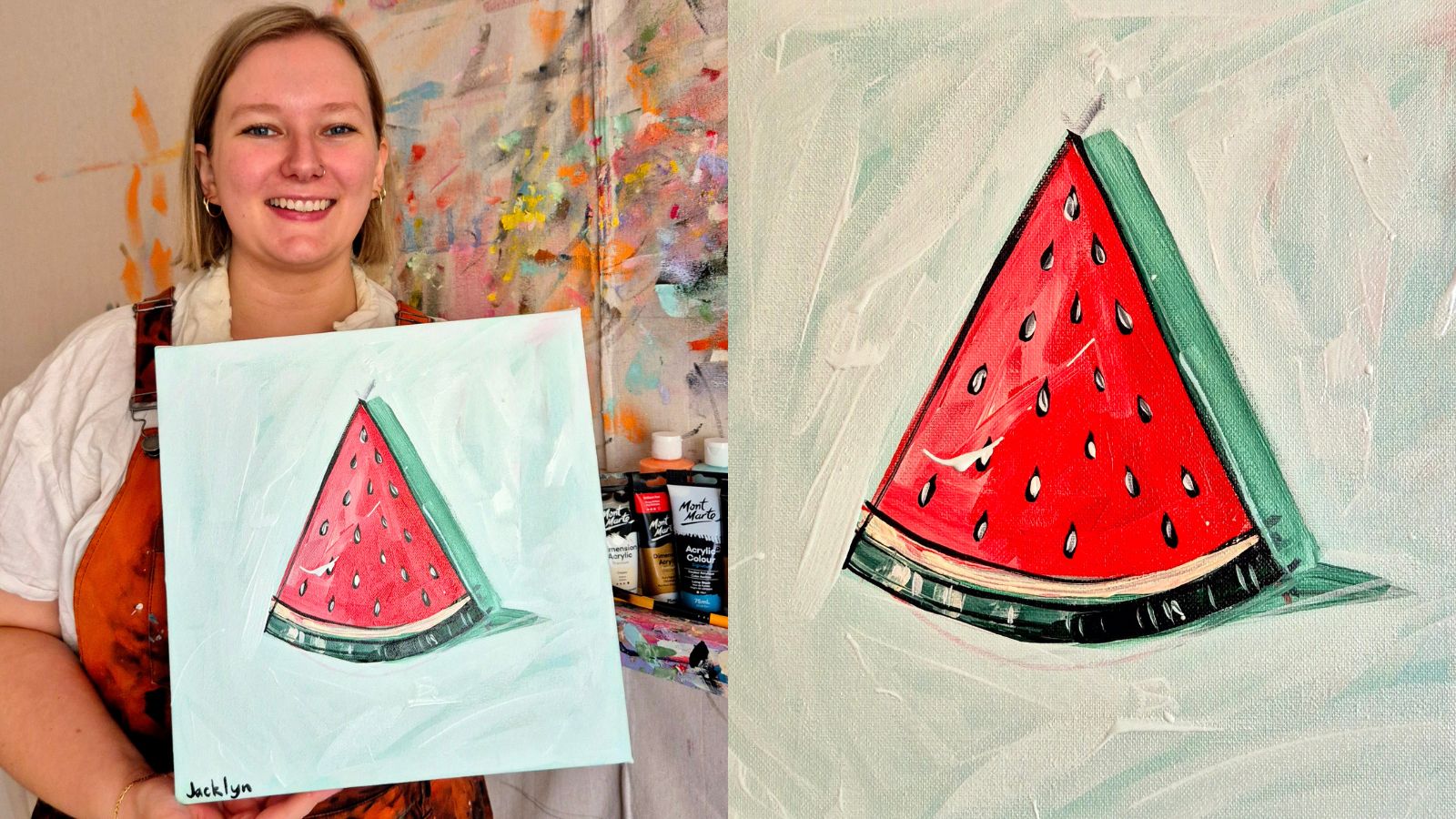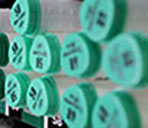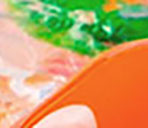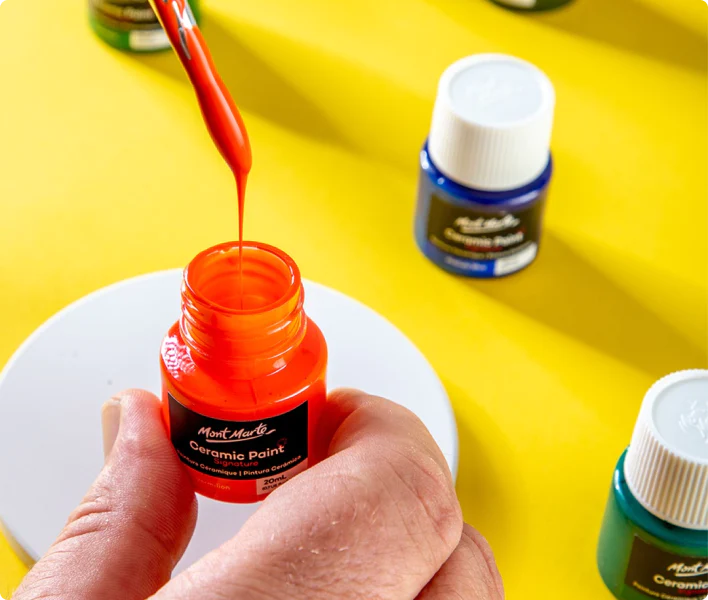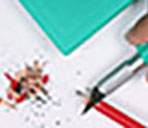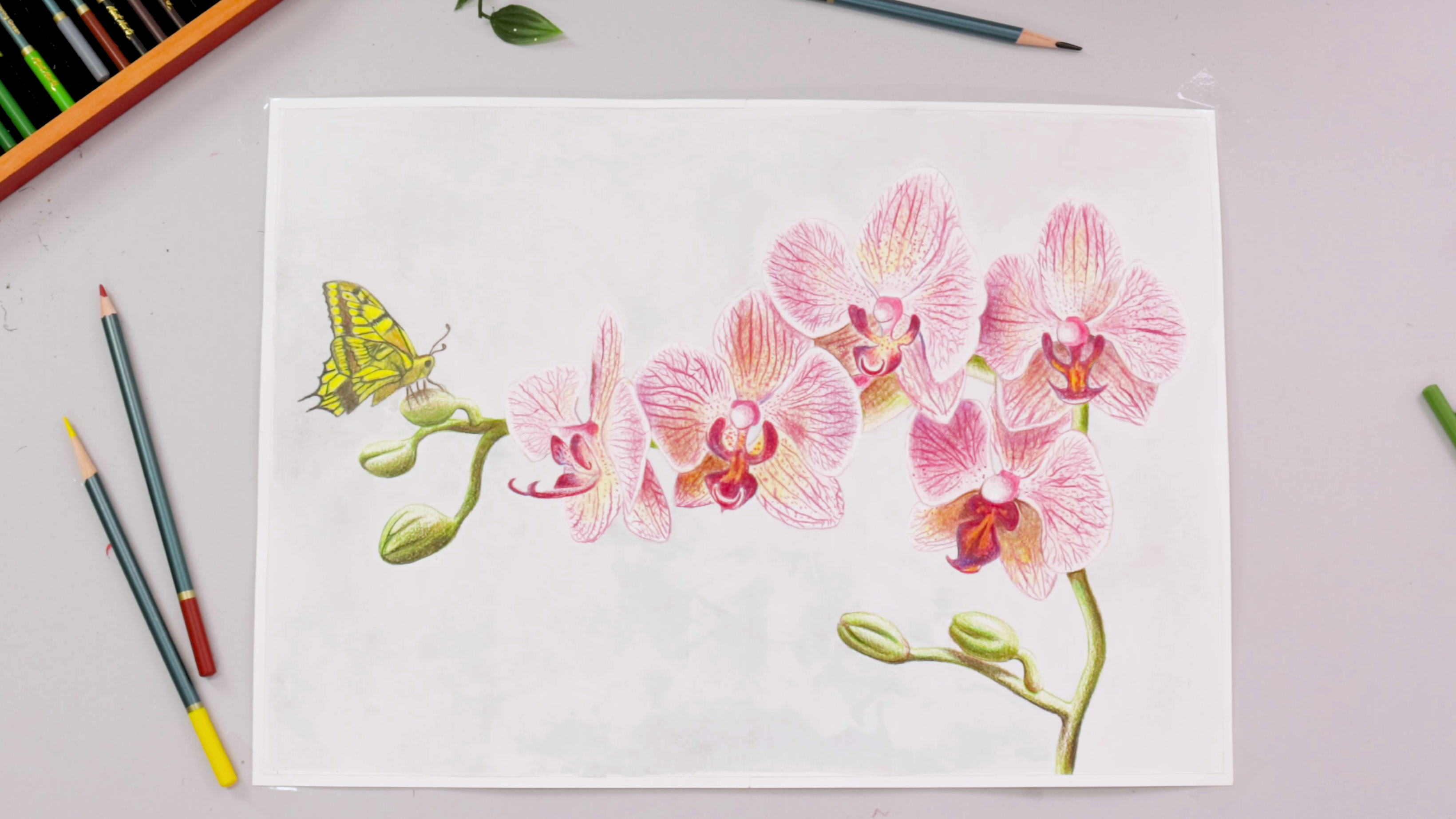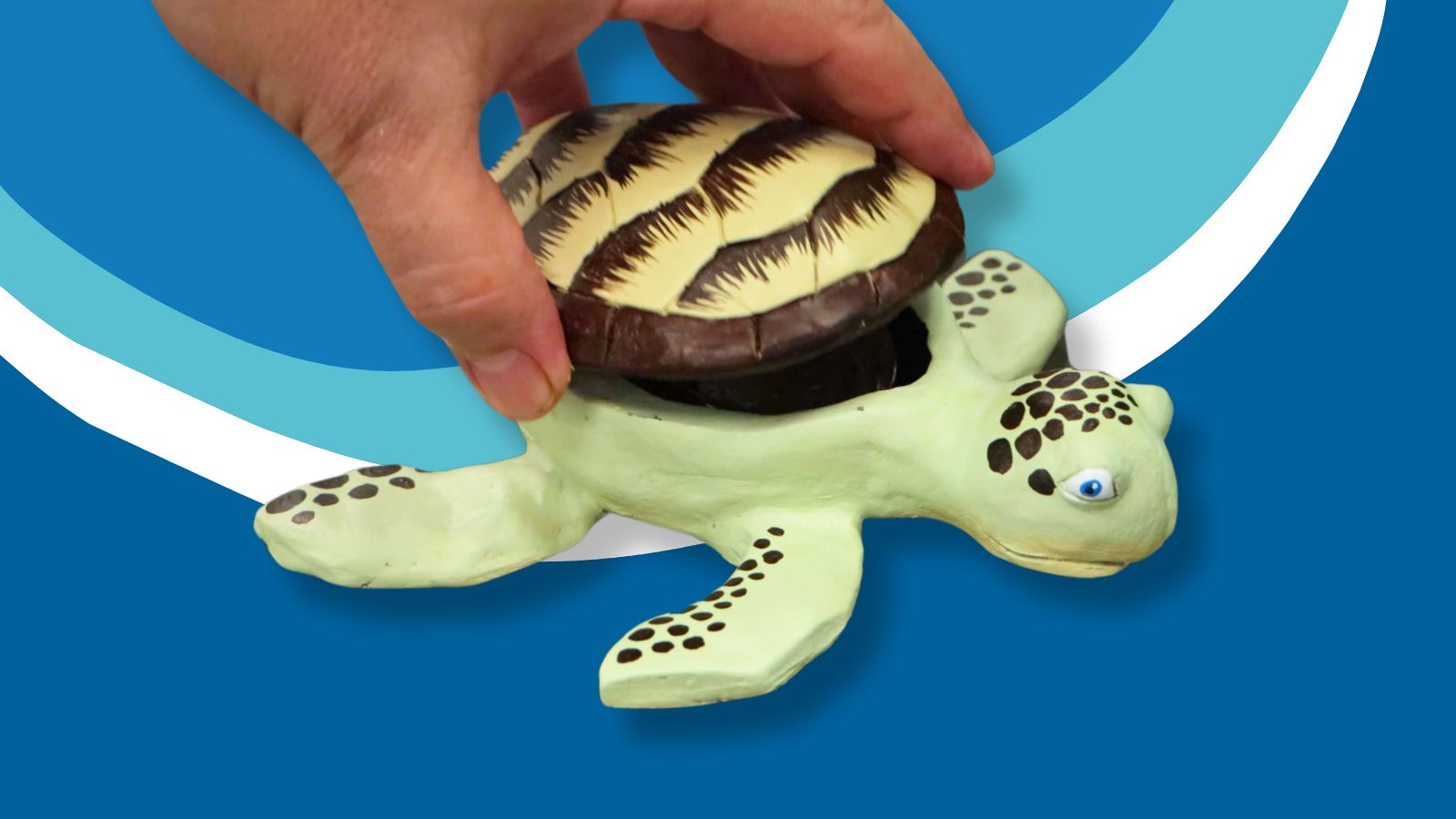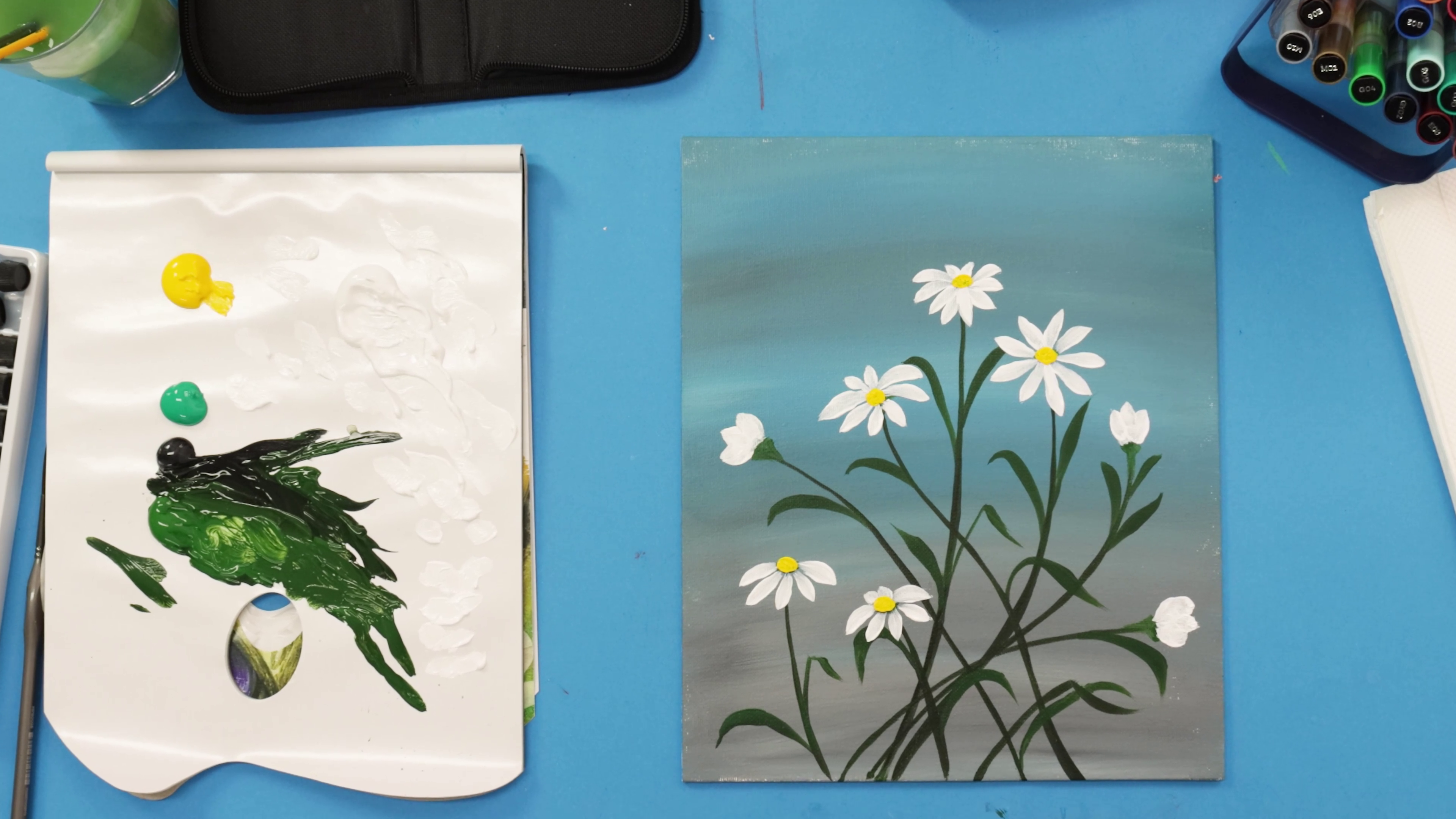How to draw a watercolour seahorse
Step 1: Drawing transfer
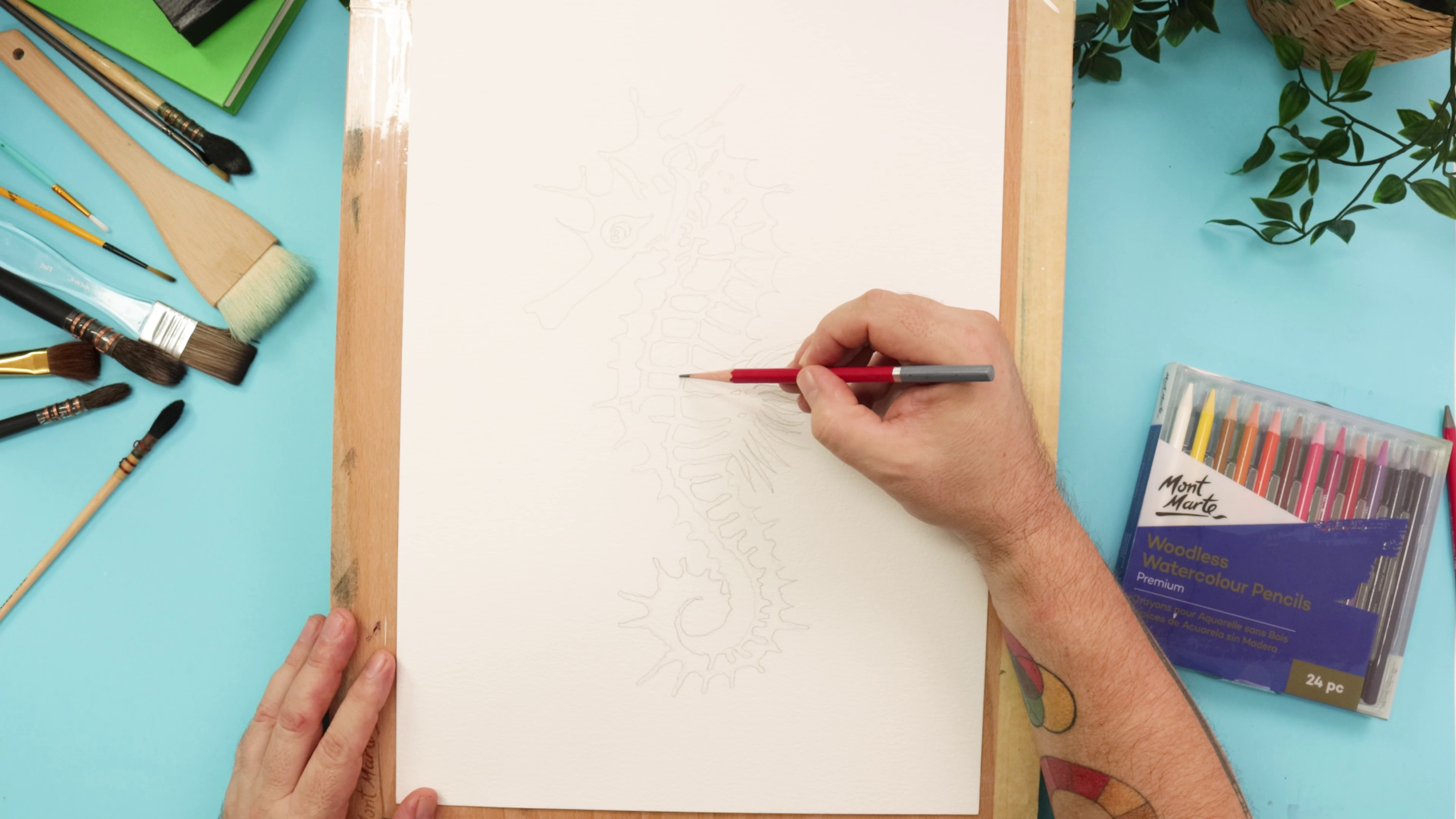
- Print the reference image or draw it directly onto your paper
- If using a printout, shade the back with a 6B pencil and trace over it onto your watercolour paper
- Use an F grade pencil to darken the outline lightly
Step 2: Using Masking Fluid
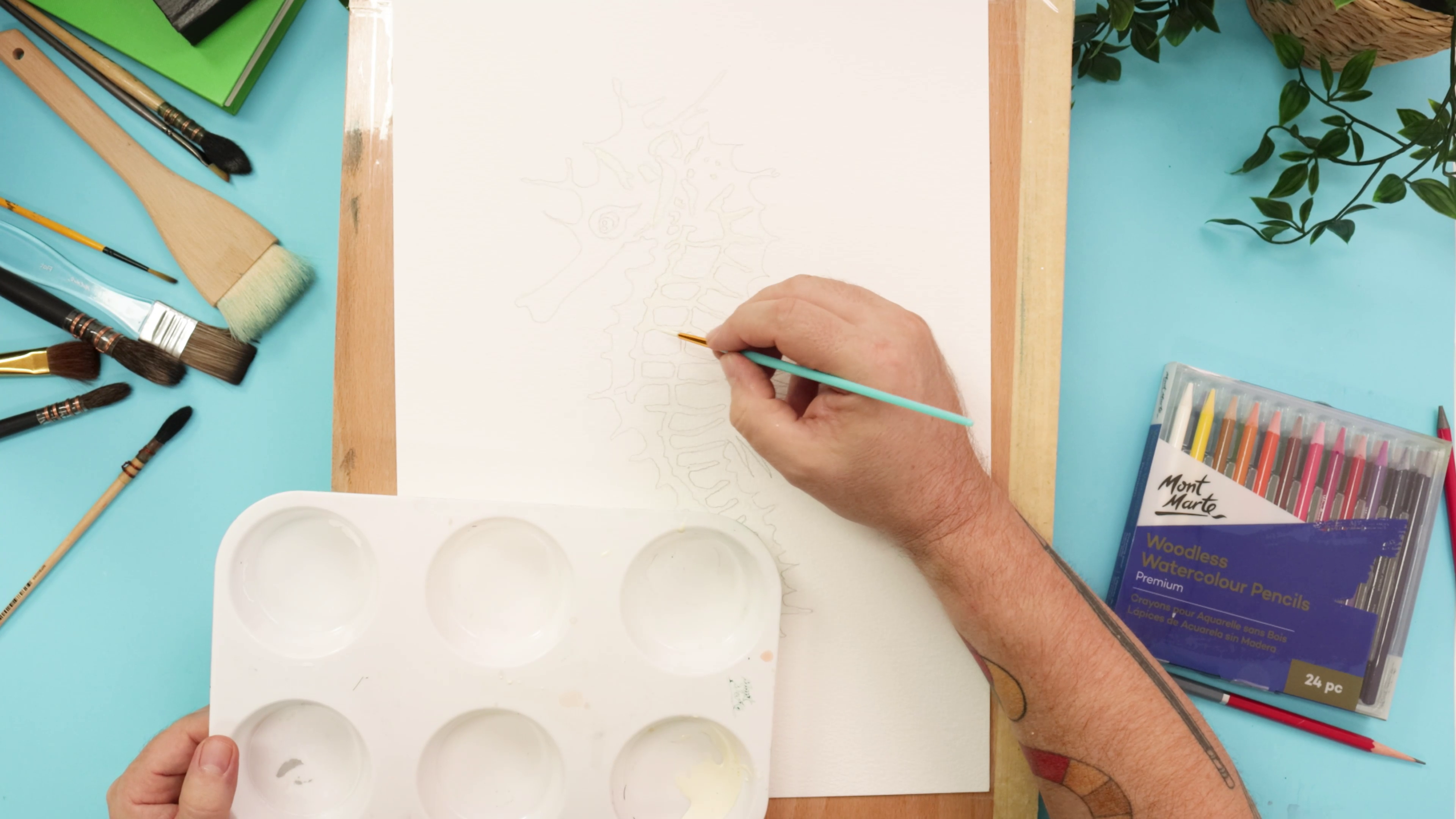
- Shake masking fluid well and pour a small amount into a palette or jar lid
- Use a cheap brush to paint the fluid onto the exoskeleton area of the seahorse
- Flick a few drops of masking fluid around for fun white splatters
- Let masking fluid dry completely
Tip: Clean the masking fluid from your brush and working surface straight after use
Step 3: Background painting
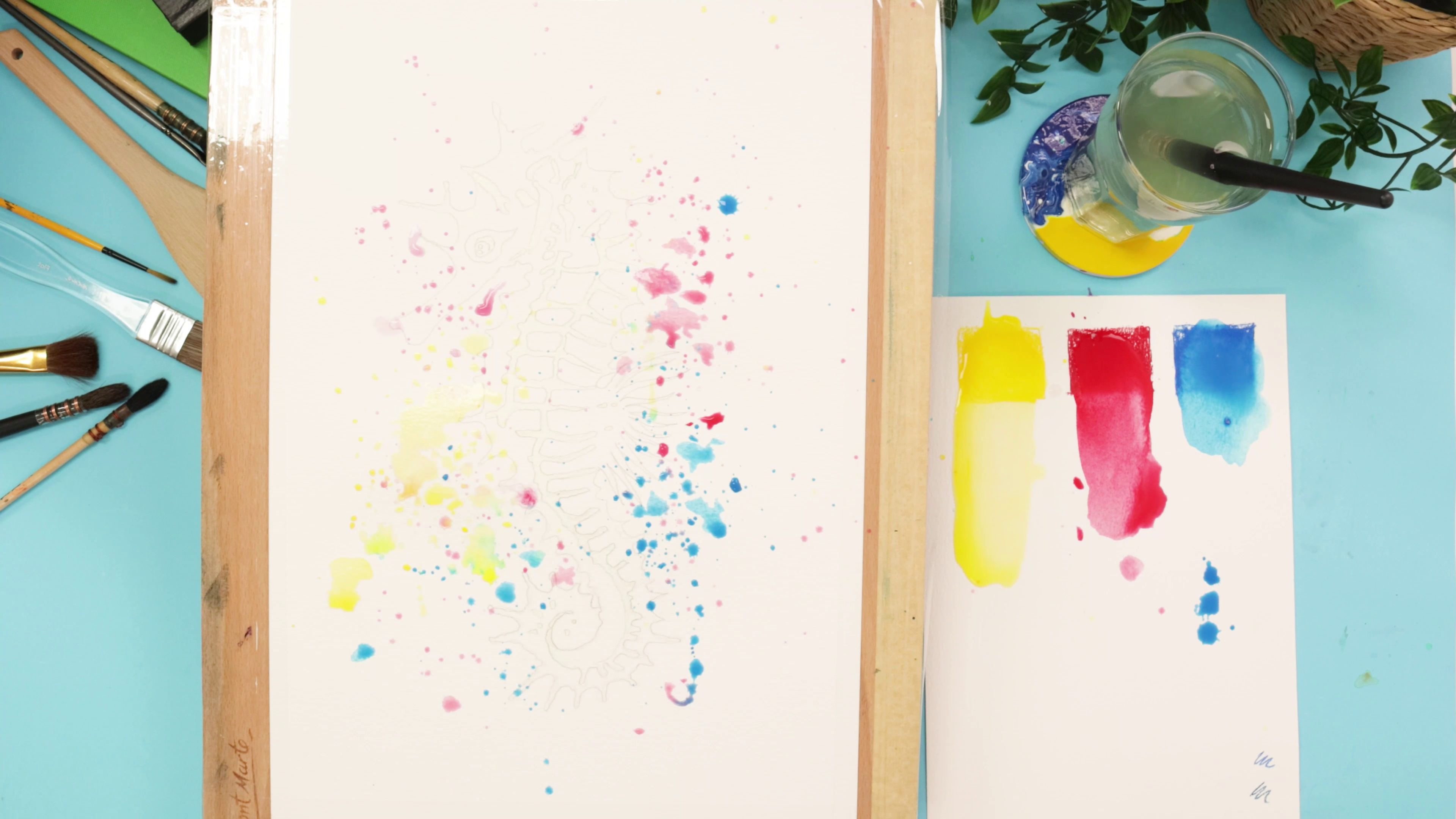
- Tape the watercolour paper to your drawing board or table using packing tape to help minimise warping
- Use your Woodless Watercolour Pencils to create large colour swatches on a separate piece of paper (Cadmium Yellow, Crimson, Cerulean Blue)
- Use a mop brush dipped in water to pick up the colour from the swatches and flick it onto the paper
- Start with yellow, then red, then blue to add colour around the seahorse
- Let the background dry fully
Step 5: Seahorse colouring
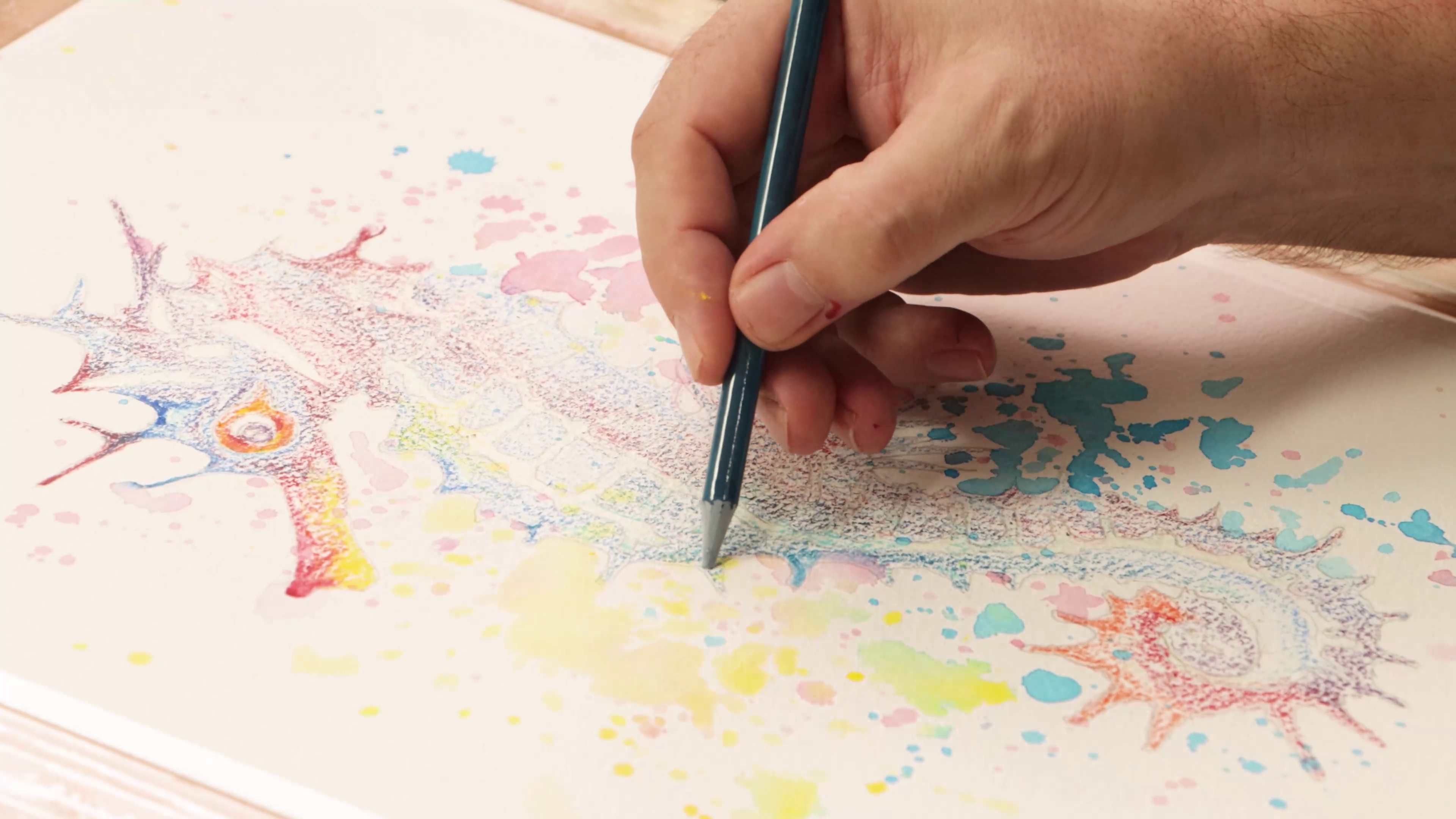
- Using the pencils directly on the paper, colour in the seahorse:
- Crimson on the muzzle
- Cadmium Yellow blending into the Crimson
- Cerulean Blue along the body
- Orange near the eye plus Lavender on the eye with touches of Yellow
- Switch between Crimson, Scarlet, Cerulean and Lavender down the body
- Phthalo Green for the belly
- Darken the spine area with Scarlet and Yellow
Step 6: Blending watercolour
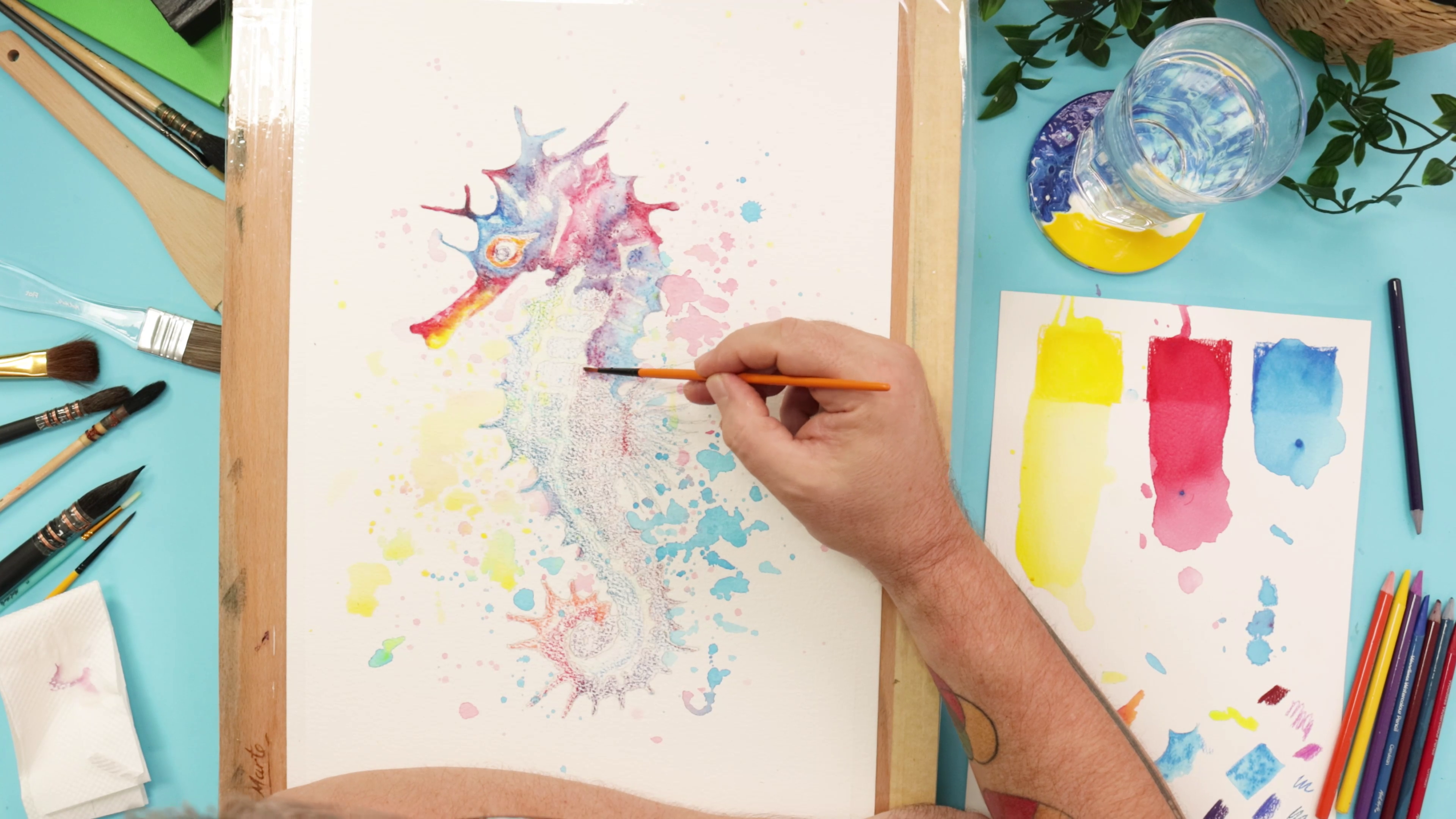
- Use a small round brush dipped in water to activate and blend the pencil marks
- Clean your brush between colours
- Blend slowly and leave a little texture from the pencil marks
- Add a touch of black to the eye for contrast
Step 7: Remove masking fluid and add details
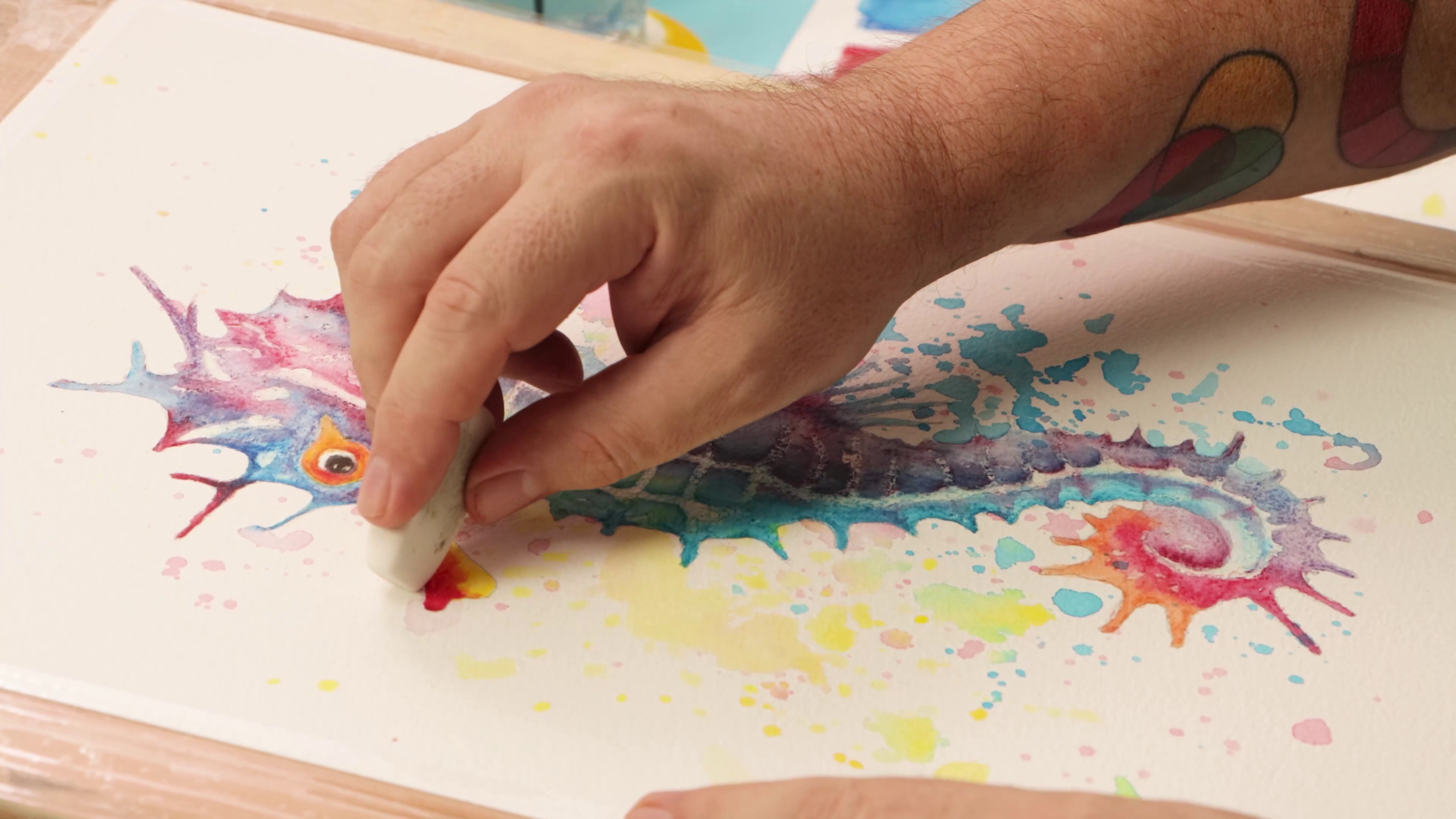
- Once fully dry, gently peel off the masking fluid with your finger or an eraser
- Use Cerulean and Scarlet to accentuate the seahorse skeleton
- Dip the tip of your pencil into water and draw directly onto the paper
- This creates bold, precise lines—great for the spines along the seahorse's head and back
Step 8: Final touches:
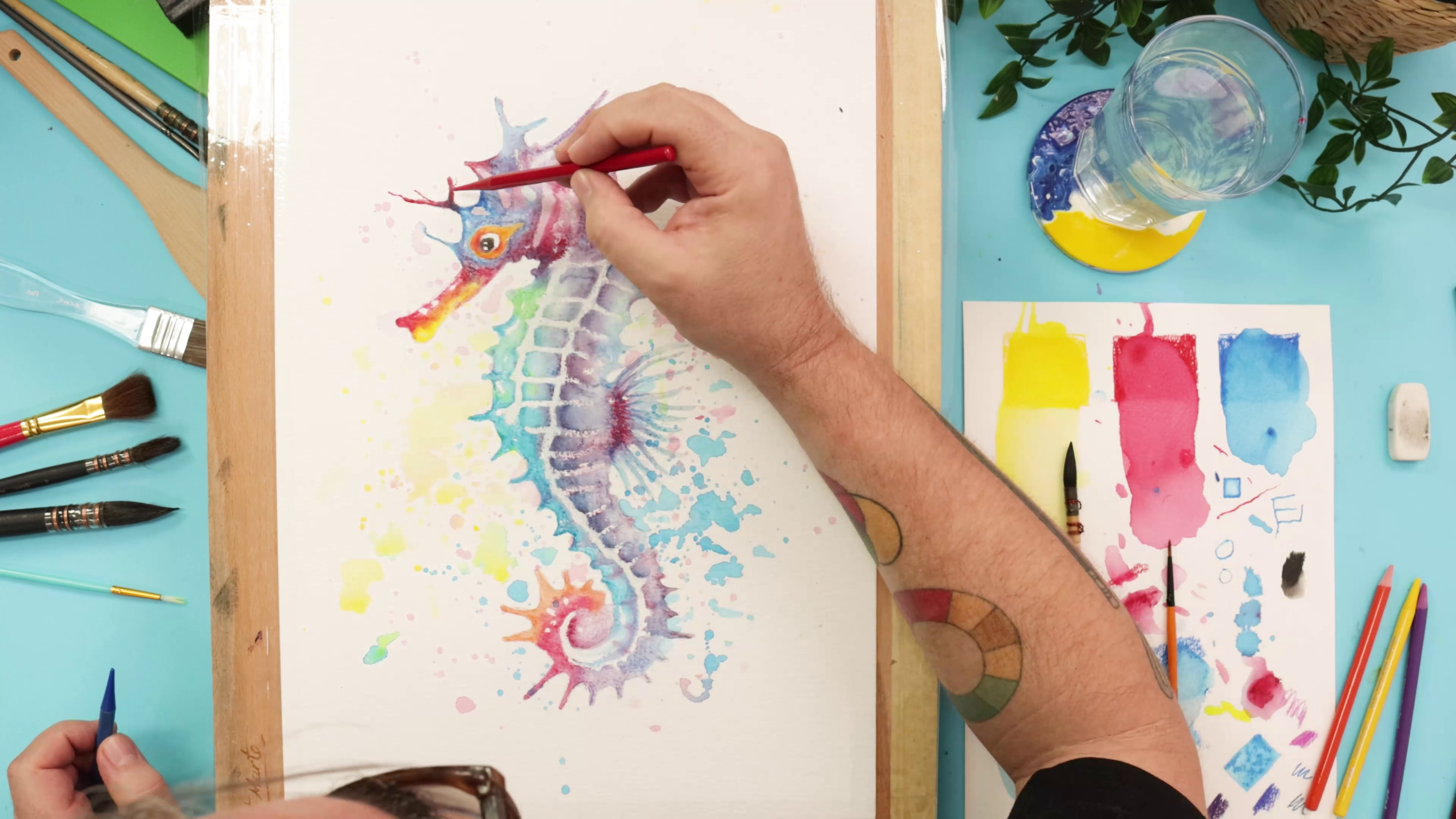
- Deepen your colours or add highlights where needed
- Let everything dry completely and remove from the drawing board
Done! You’ve created a playful, textured seahorse using watercolour pencil techniques. This project is a great intro to working with masking fluid, blending with water, and layering colour—and who doesn’t love a rainbow seahorse? 🌈🌊
- Woodless Watercolour Pencils Premium 24pc
- A3 Cotton Watercolour Paper (use the rough side)
- Masking Fluid + inexpensive brush
- Pencils (6B for transferring outline and F grade for finessing outline)
- Tear-off Paper Palette or extra sheet of watercolour paper
- Watercolour brushes (Mop, Round, Detail)
- A3 Drawing Board (optional, but helpful)
- Reference outline (download from Mont Marte website)
- Packing tape or paper tape


